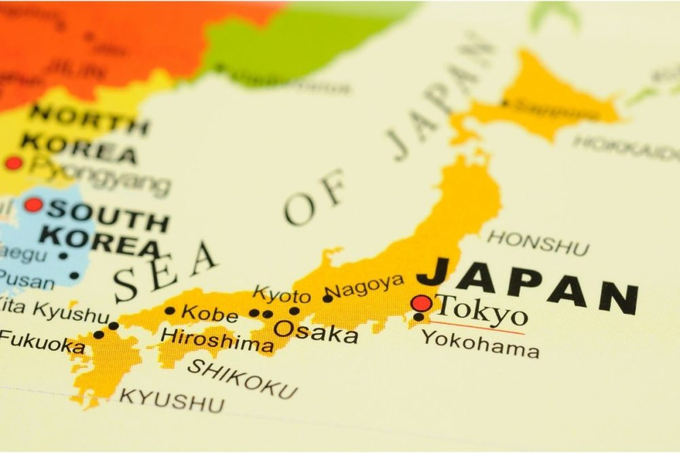December 2, 2025 | 12:21 GMT +7
December 2, 2025 | 12:21 GMT +7
Hotline: 0913.378.918
December 2, 2025 | 12:21 GMT +7
Hotline: 0913.378.918

Unfavorable weather conditions and disease outbreak in Japan’s main production regions have reduced wheat and barley production estimates, but rice is bucking the trend with higher yields and better quality for marketing year 2024-25.
Unfavorable weather conditions and disease outbreak in Japan’s main production regions have reduced wheat and barley production estimates, but rice is bucking the trend with higher yields and better quality for marketing year 2024-25, according to a report from the Foreign Agricultural Service (FAS) of the US Department of Agriculture (USDA).
With an anticipated 1.08 million tonnes harvested, the wheat estimate is down 5.8% from the 1.14 million tonnes produced in 2023-24 but remains above the 10-year average. At 234,000 hectares (up 1% year on year), wheat planted area has increased annually since 2020-21 as farmers shifted production from rice to wheat due to low rice prices.
The FAS projects modest wheat consumption growth in 2024-25, up 1% to 5.55 million tonnes from the previous year, based on demand from the tourism and foodservice sectors, as well as a shift from rice to wheat products as rice prices soar.
Due to decreased production, the FAS forecasts an increase in wheat imports in 2024-25 to 5.5 million tonnes, up from 5.34 million tonnes the prior year.
Almost all barley is produced in paddies in rotation with rice, wheat and soybeans and the planting areas have increased since 2022-23 reflecting robust demand as domestic barley has become price competitive with imported barley.
The FAS sees barley production in 2024-25 at 220,000 tonnes, a drop of 5.6% from 233,000 tonnes in 2023-24 from 64,500 hectares.
Rice estimates are anticipating higher production in 2024-25 on better yields and quality compared to last year, but the FAS projects a 3.1% decrease in consumption to 7.9 million tonnes as rising prices are expected to weaken demand for table rice and for feed.
Japan’s milled rice production is projected to reach 7.35 million tonnes, up 7.29 million tonnes year on year, though harvested acres will be down 1.3% to 1.46 million hectares, following a long-term trend as aging farmers quite or reduce rice farming, the FAS said.
The FAS is forecasting higher corn imports in 2024-25 based on the projected increase in overall feed demand and corn use in feed rations, where the competitively priced commodity is replacing rice in the latter half of 2023-24 while dipping into barley and wheat demand in 2024-25.
Japan produces very little corn, but in 2024-25 is projected to import 15.7 million tonnes, up from 15.4 million tonnes in 2023-34 and 14.9 million tonnes in 2022-23. Consumption for feed is seen at 12.5 million tonnes, up from 12 million tonnes year on year.
(WG)

(VAN) Climate change is a growing concern for agricultural productivity and several studies have focused on how climate variations can impact crop yields.

(VAN) In today's fast-paced society, with people busy with their work and social lives, many dream about quitting the rat race to experience a slower pace of life, which they imagine as being more poetic.

(VAN) Mindanao’s durian industry is reaping the benefits of rising global demand, with farmers now enjoying improved market access, better farmgate prices, and stronger profitability, the Department of Agriculture in Davao Region (DA-11) reported.

(VAN) Iraq is currently grappling with one of the most severe agricultural and livestock crises in its modern history.

(VAN) The Mediterranean and the Black Sea: Fisheries sustainability concerns remain, but overfishing drops to its lowest level in a decade, while aquaculture feeds more people.

(VAN) Cargill Inc has no plans to close its U.S. beef processing plants, days after meatpacker Tyson Foods l opens new tab announced it would shutter a Nebraska facility as industry grapples with cattle supplies.

(VAN) New outbreaks of avian influenza and Newcastle disease have hampered egg production in several European countries, triggering a supply deficit.